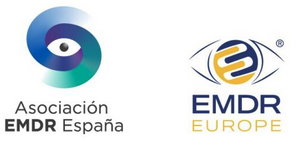How can I know if I need psychological or sexological help?
It is not always easy to know. Generally, every situation that generates thoughts, emotions and behaviors that make us (or other people) suffer and/or hinders our day to day functioning (at work, with our couple, friends, family…) is very likely to be susceptible to psychological and/or sexological attention.
In case of doubt we recommend you to consult us without obligation, perhaps opting for our free informative session. This way you can decide if we can help you with your problem. You can contact us via email or telephone.
What does psychotherapy consist of?
Attending a psychological care consultation is an important (and sometimes difficult) step, therefore, it is important for us to inform you about the process that we are going to begin together.
In some cases, a few sessions of counseling may be sufficient, but very often the problem is more complex and requires a therapeutic process consisting of the following phases:
Evaluation of the problem and of the person (or people) involved in it: during some sessions we will gain an in-depth understanding of the problematic behaviors, emotions and/or thoughts, as well as a brief psychosocial history of the person or couple. It will be necessary to find out the origin and maintenance of the problem for a correct intervention.
Feedback: we inform you of what has been evaluated and how to solve the problem or alleviate the symptoms. During this session we share our therapeutic objectives, and we explain the subsequent intervention.
Intervention: period in which we make the necessary changes, we learn helpful psychological techniques, etc. During this phase it is common to give the patient “homework” as part of the treatment. At this point of the process, teamwork is essential.
Follow-up sessions: once the objectives have been achieved, some follow-up sessions will be carried out (more spaced in time) to verify that the favorable changes are being maintained and to prevent relapses. Even having performed face-to-face psychotherapy, these follow-up sessions can sometimes be done by telephone.
In any case, the phases described above are the basic axis we work with, but the evaluation and treatment are always carried out in a personalized way since, depending on each case, different type of strategies are convenient to solve or improve the problem.
What methodology do we use?
We follow a Cognitive-Behavioral orientation, which is empirically contrasted and therefore has scientific support.
In addition, this methodology encourages the patient to learn strategies, which reduces dependency towards the therapist and reduces the number of sessions.
How often should I go to consultation?
Usually, the sessions are arranged in a weekly basis, as this allows to reach the objectives more quickly. Anyway, depending on the characteristics of each case, we can establish another frequency of the sessions.
If I have a sexual or relationship problem, should we both come to consultation?
On the first visit, if the problem is of a sexological nature, you can attend with whomever you feel most comfortable, depending on what concerns you. Once the evaluation has begun, your therapist will inform you if and when it is advisable for your partner to accompany you. On the other hand, if the problem that brings you here is a couple’s problem, it is usually convenient for both of you to come
If you have a sexological problem, you can attend the first session how and with whom you are most comfortable with, depending on what troubles you most. Once the evaluation begins, your therapist will inform you if it is convenient (and when) for your partner to accompany you.
On the other hand, if the problem that brings you to consultation is a relationship problem, it is usually convenient for both of you to come.
Can I start a sexological treatment if I don’t have a partner?
Of course you can. On many occasions, when a sexological treatment is performed, having a partner who collaborates in the therapy can be advantageous; but if you are not in that situation, there are other strategies to solve or improve the problem.
Can I come to therapy if my schedule is complicated?
Yes. The consultation hours are as flexible as possible so we can adapt to your needs.
Will the therapy last long?
The length of the treatment depends on each case. It is not intended to be an eternal path but the enough time for you to learn to select and use the tools we need to be happier or solve the problem, and in the shortest time possible.
Who can request a psychological expert report?
Usually, a psychological expertise can be requested by:
• The Court: who designates the expert from a list of professionals specialized in the subject or requests the services of an expert professional affiliated to the Administration of Justice.
• Any of the parties involved in the judicial process: they can hire the services of an expert psychologist (not affiliated to the Administration of Justice).
• Any person who needs the services of a psychologist who is an expert in forensic psychology.
Can any psychologist perform a psychological expertise?
Although currently in Spain there is no official degree or rules that regulate the actions of the forensic psychologist, not all professionals are trained to conduct a psychological expertise.
Therefore, we recommend that before ordering a psychological expert report you make sure to hire a professional who has specific training and experience in the area of Forensic-Legal Psychology.
The Official College of Psychology of the Balearic Islands (COPIB) offers a list of expert psychologists as well as a database in which psychologists can be searched by areas of specialization.
How much does a psychological expertise cost?
The price of a psychological expertise can vary greatly depending on the characteristics of the case. Some of the factors that influence the budget of the expertise are:
• Scope of the case: civil, family, labor, criminal or procedural. Criminal law cases are more expensive since they carry greater implications for the expert and for the parties involved in the process.
• Methodology and evaluation techniques required to carry out the expert evaluation (meetings, interviews, questionnaires, study of case files, other sources of information, etc.).
• Case dimension. For example, the price will be higher if the evaluation is carried out on several people instead of one person.
• Difficulty and implications of the case.
• Time dedicated to the evaluation and elaboration of the report. In case of an urgent psychological expertise, the price will be increased.
• Ratification of the report. The ratification consists in the appearance of the expert in the Court and the defense of the expert report. Not all cases require the presence of the professional during the trial (e.g. cases in which the parties reach an agreement).
• Diets. The evaluation may require travel, food, overnight stays, etc.
When is a psychological expert report necessary?
When you are facing a judicial process in which psychological factors may be (or were) involved. In any case, we always recommend you to consult with your lawyer, since he/she can advise you about the need of an expert report.
What is the difference between a psychological report and psychological expert report?
The psychological report can be issued by any professional psychologist, it is usually issued from a clinical or general health field, so it generally reflects what was appreciated during the evaluation and, when applicable, during the intervention sessions. It follows a different structure from the expert report and lacks judicial validity. Even so, the psychologist who issues a psychological report can be called to testify, although not as an expert, but as a witness.
In contrast, the psychological expert report is issued by a forensic psychologist, who has carried out an exhaustive collection and analysis of relevant data for the specific case, through the use of specific forensic methodology. The report has judicial validity as expert evidence. Also, the expert report is sent to the Court, where the professional may be summoned to ratify its content as a psychological expert.
In this video we answer some of the most frequently asked questions regarding the work of sexologists.












